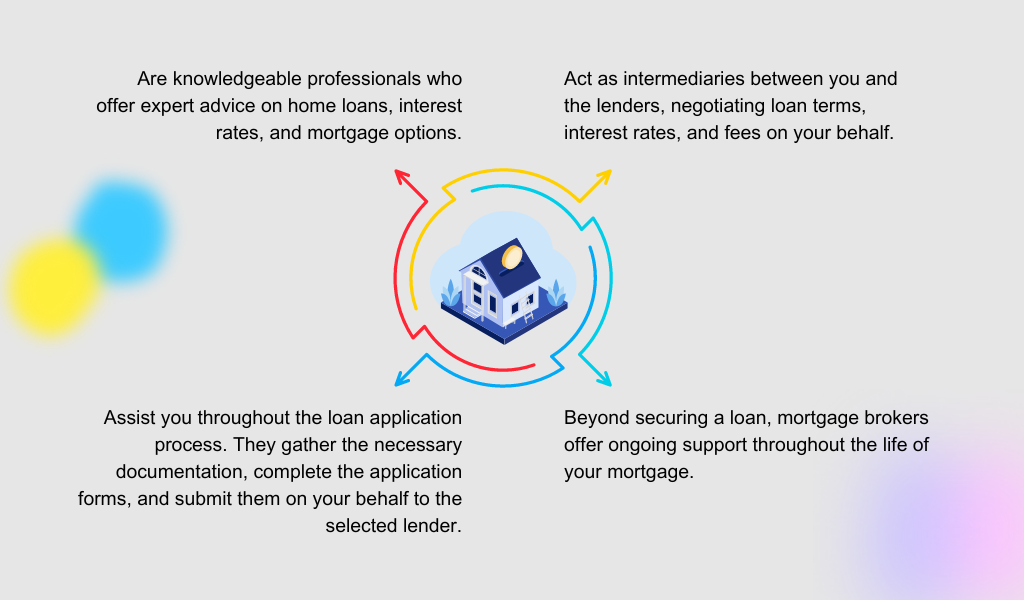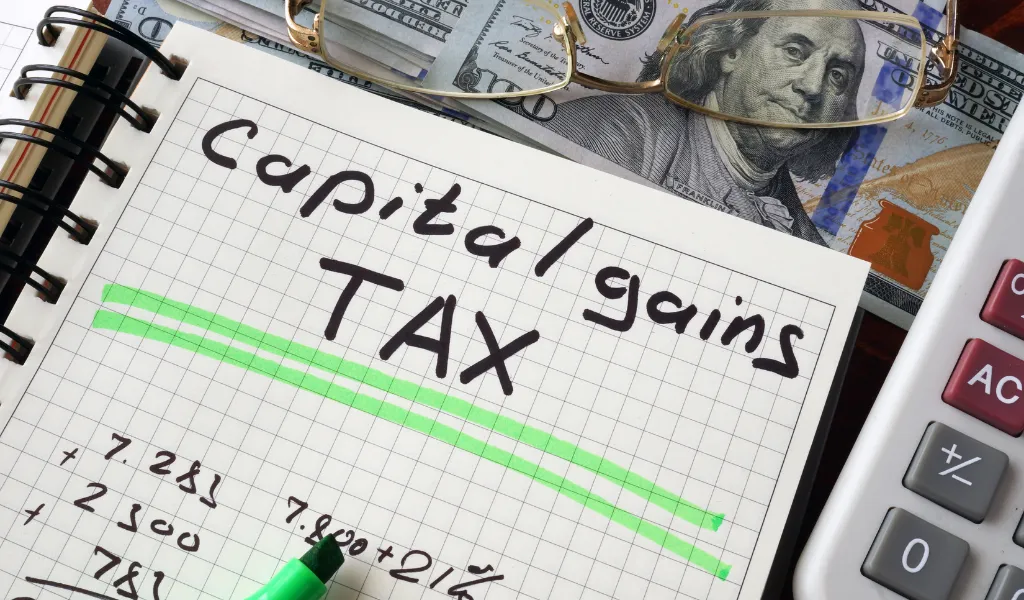Ideally, you would purchase a house when mortgage rates and home prices are at their lowest. You probably would not time the market exactly, though.
Nevertheless, forecasts and data can assist you in making your choice. Over the last six months, there has been a decline in both home prices and mortgage rates. As of now, the average mortgage rate for a two-year fixed rate is less than 5.6%. In July, this percentage was 6.86%.
In the end, the timing is appropriate for you if you have saved up the money and locate a home in a neighbourhood you will be content to call home for several years. Hence, you must consider your priorities when buying a house.
Furthermore, the benefits of having a house of your own that you can change to suit your needs outweigh the advantages of holding out to see what happens in the market, hoping to save an undetermined sum of money. Luckily, this guide will cover all the costs you incur when buying a home.
How Much Does It Cost to Buy a House in 2024?
The average cost of buying a house varies according to the location, size, and value of the house. Additionally, the type of survey you require is also a factor. Please note that the average cost is inclusive of upfront costs and extra costs. Moreover, in Scotland, the process of buying may differ. Indeed, you must understand how to calculate the amount of money you need to buy a home.
Let us go through the costs you will incur one by one:
Mortgage Deposit
First, let us discuss mortgage deposits. When you take out a mortgage, you need to place a deposit, which is an initial amount towards the cost of the house. Usually, a mortgage lender will request at least 5% of the purchase price of the property as a deposit. It can go up to 20%.
For now, let’s use the average house price as of 29th January 2024, which is £264,400, according to Forbes. Then, you will need to place a 10% deposit of £26,440.
For those who can afford a bigger deposit, there are better mortgage deals available. As a result, you get lower interest rates.
Moreover, you should not worry if you are struggling to save for a deposit for your home. You can use the government initiative of Lifetime ISA to climb the property ladder. Therefore, it is important to save up for a deposit.
Mortgage Broker Fee
Eventually, you may need a mortgage broker to advise you on what mortgage is right for you. Moreover, they will help you find the best lender according to your circumstances. Even though it is not a requirement to get a mortgage broker, they have access to mortgage deals that you otherwise cannot avail. So, if you wish to reach out to a mortgage broker, then their average fee is approximately £500-600. After completion, extra costs will apply. Thus, you need a mortgage broker when buying your first property.

Mortgage Fees
Moving on to mortgage fees, which you need to save for aside from the deposit. To get a mortgage, you must pay this fee, the amount of which varies from lender to lender. Hence, you must consider every fee, whether big or small, when calculating how much you need to buy a house.
The table below shows the amount of mortgage fees you may end up paying to get a mortgage for your home:
| Type of Fee | Cost |
|---|---|
| Arrangement fee | Up to £2000 |
| Booking fee | Up to £300 |
| Valuation fee | £200 to £1500 |
| Telephonic transfer fee | £40 to £50 |
Conveyancer Fees
Next, you need a conveyancer when purchasing a property as they will handle the legal side of the transaction. The average conveyancing fee is £1,300 for a freehold property. However, factors such as the value of the house, size, location, and the conveyancer you choose, determine the fees. Furthermore, if you are buying a leasehold property, then it will cost you more. The average fee of a leasehold property is £1,590. Thus, you must factor all this in when saving up to purchase a property.
The table below shows the average fee for freehold and leasehold properties:
| Property Type | Average Fee | Lowest Fee | Highest Fee |
|---|---|---|---|
| Freehold property | £1,300 | £570 | £2,100 |
| Leasehold property | £1,590 | £620 | £2,150 |
Disbursements
Aside from bearing legal costs, you also need to pay conveyancing disbursements. Your conveyancer will pay these fees to third parties for you. Moreover, the cost of a local authority and an environmental search are part of these fees. Undoubtedly, you need to calculate all these costs carefully.
Stamp Duty
Right now, for the UK average property price, which is £264,400, Stamp Duty will cost you £720. You must pay Stamp Duty Land Tax when you buy a property worth more than £250,000 in England and Northern Ireland. If you are a first-time buyer, then you do not owe SDLT on property worth up to £425,000. In Wales, Land Transaction replaced SDLT, whereas in Scotland, it is Buildings Transaction Tax. These taxes can apply up to 12%. To calculate the amount of SDLT you owe, you can use an online Stamp Duty Calculator. Ultimately, the amount of SDLT you need to pay depends on the purchase price of your property.
The table below shows the SDLT rates based on house prices:
| Purchase Price | Stamp Duty Rate | Stamp Duty Rate for Additional Properties |
|---|---|---|
| Up to £250,000 | 0% | 3% |
| £250,001 to £925,000 | 5% | 8% |
| £925,001 to £1.5 million | 10% | 13% |
| Over £1.5 million | 12% | 15% |
Surveying Costs
Lastly, another cost that you may incur when buying a property is for a property survey. Legally, there is no requirement to get one. However, you will get a clearer idea of the property’s condition through a survey. Furthermore, you will know if it requires any maintenance or repairs.
The table below shows the various types of surveys and their costs:
| Type of Survey | Cost |
|---|---|
| RICS Home Survey Level 1 | £300–£900 |
| RICS Home Survey Level 2 | £400–£1000 |
| RICS Home Survey Level 3 | £630–£1500 |
What are the Additional Costs of Purchasing a Property?
Also, there are certain extra costs that you must bear when buying a house, including:
Removal Costs
Finally, when it is time to move to your new home, you will need to pay for removal costs. Getting a removal team to help you move will cost you around £500-£2,000. If you do not wish to pay removal costs, then you rent a van to lower this expense significantly. Also, if you want to weigh up what you require to meet your needs and suit your budget, you should get a house removal quote. Thus, you can have a clearer picture of how much you may end up paying for removal costs.
Storage
Additionally, you may need storage for items that you got before purchasing your home. Or maybe you are caught in between moving homes. The UK average self-storage cost is £23.94 per sq. Ft., according to the Self-Storage Association (SSA). However, across the country and between companies, the costs will vary. Another determining factor is whether you require a specialised climate-controlled storage. Indeed, you must consider all this before you decide to get a storage.
Insurance
Buildings insurance: You need this policy to protect the physical building, which is the outer structure of your home. This includes fixtures and fittings. Such type of insurance covers everything that is not possible to remove. For example, bathtubs and doors. Per year, the average building policy will cost you £113. Thus, you should consider whether this type of insurance meets your needs.
Contents insurance: With this type of insurance, you can protect your belongings inside the house, shed, and garage. This includes white goods, furniture, and televisions. Per year, the average contents policy will cost you between £59 and £66. Hence, you should weigh your options and see which policy meets your requirements.
Combined buildings and contents insurance: A combination of the two policies, this type of insurance is less expensive than getting two separate policies. If you are a freeholder living in your home, this is suitable for you. Per year, the average combined buildings and contents insurance will cost you between £146 and £152. Ultimately, you must choose your home insurance wisely.
Should A First-Time Buyer Delay Their Property Purchase?
As a first-time buyer, you may worry about house prices and mortgage rates, which is understandable. To make your decision easier, here are some reasons to delay purchasing your first property and reasons not to do so.
Reasons to Delay Your Property Purchase
In recent months, mortgage rates have seen a decrease. However, compared to a year ago, they are substantially higher. According to suggestions, throughout 2024, these rates will continue to drop. This is in line with the base rate of the Bank of England.
As per consensus, house prices are going to fall further over the next year. Consequently, if you purchase a property right now, it puts you at risk of a further decrease in the value of your first home.
In case you only placed a small deposit and there is a drop in house prices, you may end up in negative equity. Nevertheless, this issue is for those who want to or need to sell their home.
Moreover, if the house prices do continue to fall as per forecasts, then by waiting you may require a smaller mortgage loan. Thus, your lender may ask for a smaller minimum deposit.
Reasons not to Delay Your Property Purchase
Fortunately, there is no need to worry about moving out immediately or an increase in rent if you own your own house. Furthermore, when you live in your own home instead of a rental property, you pay off your mortgage and not somebody else’s mortgage.
According to Zoopla, rents are soaring. Thus, if you have your own home, these changes will not affect you. Surely, there are various benefits to owning a home.
Right now, may be the right time to find a bargain. Perchance, a seller wants to sell quickly before rates rise next year. In that case, as a first-time buyer, you are at an advantage. There is no chain to hold up the purchase process. Therefore, it is better not to delay in this case.
Conclusion
To summarise, if you are hoping to purchase a property, you need to understand the various costs associated with it. Not only are there upfront costs, but also extra costs. If your home is not in good condition, then you also require repair costs. A home survey will show if the property needs any kind of repairs. Furthermore, you need to place a mortgage deposit, pay mortgage fees, and the fee of hiring a mortgage broker. The price of your property will determine the amount of SDLT you owe. Luckily, if you are a first-time buyer, you are given more leniency when paying SDLT. Remember, it is always best to reach for expert advice before you purchase a property.








